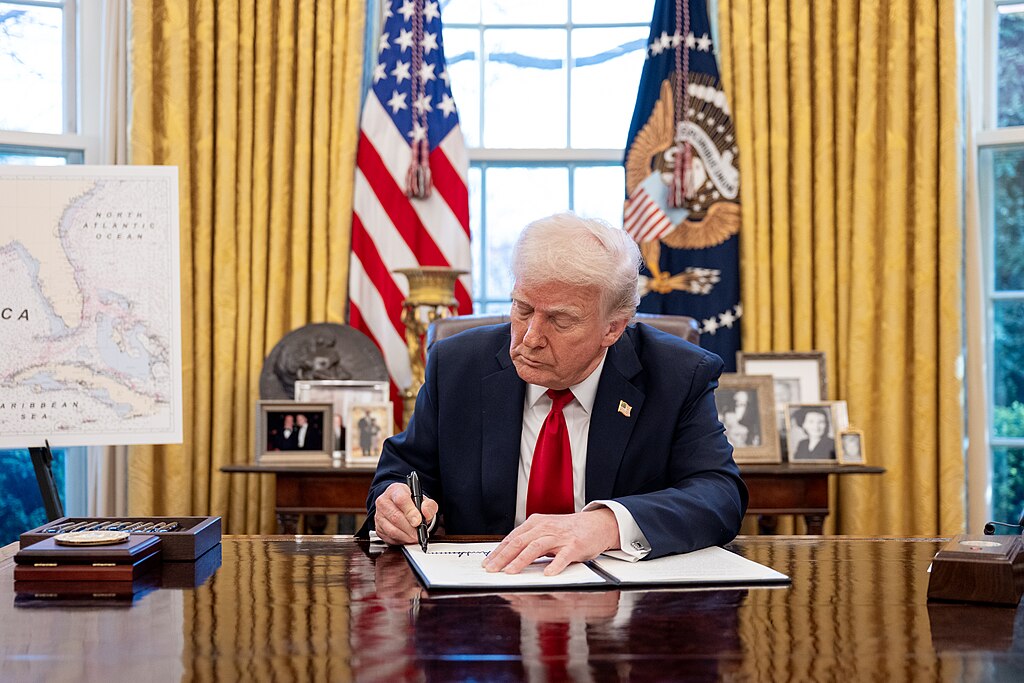President Donald Trump unveiled a new policy designed to significantly alter the landscape of U.S. trade, announcing reciprocal tariffs on foreign-made products to counteract what he described as decades of unfair treatment from international trading partners.
“Effective at midnight, we will impose a 25% tariff on all foreign-made automobiles,” Trump said. “Reciprocal means they do it to us and we do it to them. Very simple.”
Trump emphasized the move as a declaration of “economic independence,” insisting the new tariffs would reinvigorate American manufacturing, protect national security, and generate substantial job growth. He cited historical precedents, noting, “From 1789 to 1913, we were a tariff-backed nation, and the United States was proportionately the wealthiest it has ever been.”
Addressing American employers and industry leaders, Trump argued that previous U.S. policies allowed other nations to impose substantial tariffs and restrictive barriers on American products, severely harming domestic industries. He highlighted specific examples, such as India’s 70% tariff on motorcycles compared to America’s 2.4% tariff and the European Union’s 10% tariff on U.S. automobiles versus the U.S.’s 2.5%.
“Such horrendous imbalances have devastated our industrial base and put our national security at risk,” he said, referencing the U.S.’s dependence on foreign nations for essential products like antibiotics, electronics, and ships.
The announcement was supported by union representatives and workers, notably Brian from Macomb County, Michigan, who praised the initiative as a necessary step to rejuvenate struggling industrial regions.
“Donald Trump’s policies are going to bring product back into those underutilized plants,” Brian said, speaking alongside union members. “There’s going to be new investment. There’s going to be new plants built.”
Trump also noted additional measures, including a baseline minimum tariff of 10% to discourage “cheating” on trade practices, emphasizing accountability through stricter enforcement and potential criminal penalties.
In addressing potential criticisms, Trump stated that reciprocal tariffs would be set at roughly half the rate imposed by other nations, characterizing the approach as “kind reciprocal.”
The administration highlighted early investment commitments from major corporations, such as Apple, Oracle, Meta, General Motors, and Johnson & Johnson, signaling confidence in the U.S. market under the new policies. Trump cited approximately $6 trillion in planned corporate investments, asserting it would transform America’s economic landscape.
“Companies are pouring into our country at levels never seen before,” he said, emphasizing the policy’s potential to create jobs and strengthen domestic industries.
While Trump acknowledged pushback might come from global businesses and political opponents, he underscored the policy as crucial for the nation’s economic resilience.
“Tariffs give our country protection against those that would do U.S. economic harm,” he concluded. “But even more importantly, they will give us growth.”





